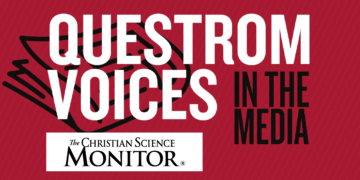September 18, 2025
Forbes recently published an article featuring Sami Karaca, Assistant Professor of Markets, Public Policy, and Law, on the U.S. government’s $9 billion investment for a 10% stake in Intel.
The move, funded through the CHIPS and Science Act, is intended to bolster semiconductor manufacturing and preserve U.S. leadership in AI and national security, but it also provides Intel with a government safety net amid financial struggles. Critics caution that such intervention could undermine free-market competition, encourage rent-seeking, and echo past failures of government-backed firms like Fannie Mae and Freddie Mac. Research further suggests partially state-owned companies often show lower productivity and profitability, distorting markets and stifling innovation.
Karaca frames the Intel deal within a larger trend, describing it as part of “a [broader] hybrid model of [American] capitalism, blending free-market principles with elements of state capitalism.”
While the Intel investment is set, deregulation and pro-market tax reforms may be a more effective long-term strategy for U.S. competitiveness than future government equity stakes.























